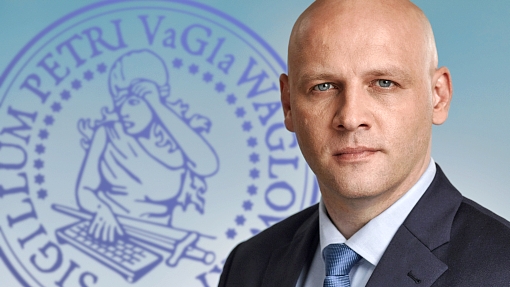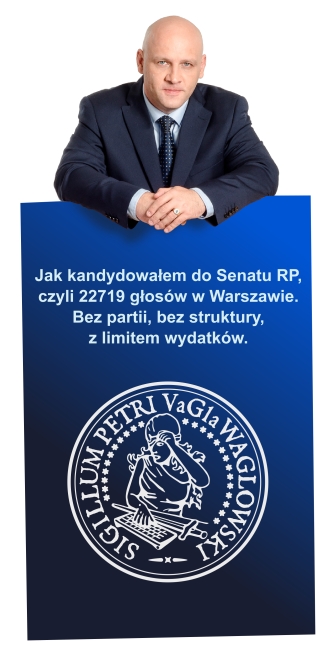Ochrona źródeł informacji w wyroku ETPCz - wyrok ze skargi nr 821/03
 15 grudnia Europejski Trybunał Praw Człowieka wydał wyrok ze skargi nr 821/03, w którym uznał, że media mają prawo chronić anonimowość swoich źródeł. To ważne rozstrzygnięcie, zwłaszcza w dobie prób ograniczania w Polsce zakresu pojęcia "prasa" (por. Dalszy ciąg dyskusji na temat pojęcia "prasa" w erze demokratyzowania się mediów (elektronicznych)), a także w czasie, gdy na całym świecie podejmowane są starania dotyczące podważenia przepisów związanych z retencją danych telekomunikacyjnych. Wyrok jest ważny również w kontekście informacji na temat prób "delegalizowania" takich serwisów, jak WikiLeaks. Okazało się, że takie wydawnictwa, jak The Financial Times, the Independent, the Guardian, the Times oraz agencja Reutersa przekonały Trybunał, że brytyjskie wyroki, zobowiązujące wydawców do ujawnienia źródeł informacji, a także prawo brytyjskie pozwalające na takie wyroki, narusza art 10 Europejskiej Konwencji Praw Człowieka.
15 grudnia Europejski Trybunał Praw Człowieka wydał wyrok ze skargi nr 821/03, w którym uznał, że media mają prawo chronić anonimowość swoich źródeł. To ważne rozstrzygnięcie, zwłaszcza w dobie prób ograniczania w Polsce zakresu pojęcia "prasa" (por. Dalszy ciąg dyskusji na temat pojęcia "prasa" w erze demokratyzowania się mediów (elektronicznych)), a także w czasie, gdy na całym świecie podejmowane są starania dotyczące podważenia przepisów związanych z retencją danych telekomunikacyjnych. Wyrok jest ważny również w kontekście informacji na temat prób "delegalizowania" takich serwisów, jak WikiLeaks. Okazało się, że takie wydawnictwa, jak The Financial Times, the Independent, the Guardian, the Times oraz agencja Reutersa przekonały Trybunał, że brytyjskie wyroki, zobowiązujące wydawców do ujawnienia źródeł informacji, a także prawo brytyjskie pozwalające na takie wyroki, narusza art 10 Europejskiej Konwencji Praw Człowieka.
Zaczęło się od publikacji na temat potencjalnego przejęcia South African Breweries (SAB) przez belgijska firmę Interbrew. Publikacje takie pojawiły się w 2001 roku. Materiały na temat przejęcia pochodziły z wycieku. Spółka Interbrew nie twierdziła wówczas, że informacje nie są prawdziwe, ale domagała się ujawnienia źródeł przecieku. Sprawa miała wówczas również wymiar ekonomiczny, gdyż w wyniku opublikowania materiałów prasowych wartość notowanych na giełdzie walorów belgijskiego potentata piwnego znacznie spadły, zaś wartość takich walorów SAB wzrosła.
Spółka Interbrew poszła do sądu i w grudniu 2001 roku londyński sąd wydał wyrok na jej korzyść, co wyczerpało wówczas mediom środki odwoławcze w Wielkiej Brytanii. Kilka dni temu zapadł wyrok Europejskiego Trybunał Praw Człowieka, w którym uznał on, że zobowiązanie mediów do podania informacji na temat źródeł wycieku było w istocie naruszeniem art 10 Konwencji o ochronie praw człowieka i podstawowych wolności. Poza rozstrzygnięciem o naruszeniu Trybunał przyznał również organizacjom medialnym zwrot kosztów procesu w wysokości 160 tys euro.
Zacytujmy Artykuł 10 Konwencji (Wolność wyrażania opinii):
1. Każdy ma prawo do wolności wyrażania opinii. Prawo to obejmuje wolność posiadania poglądów oraz otrzymywania i przekazywania informacji i idei bez ingerencji władz publicznych i bez względu na granice państwowe. Niniejszy przepis nie wyklucza prawa Państw do poddania procedurze zezwoleń przedsiębiorstw radiowych, telewizyjnych lub kinematograficznych.
2. Korzystanie z tych wolności pociągających za sobą obowiązki i odpowiedzialność może podlegać takim wymogom formalnym, warunkom, ograniczeniom i sankcjom, jakie są przewidziane przez ustawę i niezbędne w społeczeństwie demokratycznym w interesie bezpieczeństwa państwowego, integralności terytorialnej lub bezpieczeństwa publicznego ze względu na konieczność zapobieżenia zakłóceniu porządku lub przestępstwu, z uwagi na ochronę zdrowia i moralności, ochronę dobrego imienia i praw innych osób oraz ze względu na zapobieżenie ujawnieniu informacji poufnych lub na zagwarantowanie powagi i bezstronności władzy sądowej.
Wyrok Europejskiego Trybunału Praw Człowieka z 15 grudnia 2009 roku dostępny jest online. Dostępne są również pierwsze komentarze na jego temat: European Court of Human Rights recognises right to protect sources. Ja zacytuję obszerny fragment uzasadnienia tego wyroku:
59. The Court reiterates that freedom of expression constitutes one of the essential foundations of a democratic society and that, in that context, the safeguards guaranteed to the press are particularly important. Furthermore, protection of journalistic sources is one of the basic conditions for press freedom. Without such protection, sources may be deterred from assisting the press in informing the public on matters of public interest. As a result, the vital “public watchdog” role of the press may be undermined and the ability of the press to provide accurate and reliable reporting may be adversely affected. Having regard to the importance of the protection of journalistic sources for press freedom in a democratic society and the potentially chilling effect that an order for disclosure of a source has on the exercise of that freedom, such a measure cannot be compatible with Article 10 unless it is justified by an overriding requirement in the public interest (see Goodwin, cited above, § 39).
60. The Court recalls that as a matter of general principle, the “necessity” of any restriction on freedom of expression must be convincingly established. It is for the national authorities to assess in the first place whether there is a “pressing social need” for the restriction and, in making their assessment, they enjoy a certain margin of appreciation. In the present context, however, the national margin of appreciation is circumscribed by the interest of democratic society in ensuring and maintaining a free press. This interest will weigh heavily in the balance in determining whether the restriction was proportionate to the legitimate aim pursued. The Court reiterates that limitations on the confidentiality of journalistic sources call for the most careful scrutiny by the Court (Goodwin, cited above, § 40).
61. The Court's task, in exercising its supervisory function, is not to take the place of the national authorities but rather to review the case as a whole, in the light of Article 10, and consider whether the decision taken by the national authorities fell within their margin of appreciation. The Court must therefore look at the interference and determine whether the reasons adduced by the national authorities to justify it are “relevant and sufficient” (Handyside v. the United Kingdom, 7 December 1976, § 50, Series A no. 24 and Goodwin, cited above, § 40).
62. The Court reiterates that under the terms of Article 10 § 2, the exercise of freedom of expression carries with it duties and responsibilities which also apply to the press. Article 10 protects a journalist's right – and duty – to impart information on matters of public interest provided that he is acting in good faith in order to provide accurate and reliable information in accordance with the ethics of journalism (Fressoz and Roire v. France [GC], no. 29183/95, § 54, ECHR 1999-I and Bladet Tromsø and Stensaas v. Norway [GC], no. 21980/93, § 65, ECHR 1999-III).
63. In the case of disclosure orders, the Court notes that they have a detrimental impact not only on the source in question, whose identity may be revealed, but also on the newspaper against which the order is directed, whose reputation may be negatively affected in the eyes of future potential sources by the disclosure, and on the members of the public, who have an interest in receiving information imparted through anonymous sources and who are also potential sources themselves (see, mutatis mutandis, Voskuil v. the Netherlands, no. 64752/01, § 71, 22 November 2007). While it may be true that the public perception of the principle of non-disclosure of sources would suffer no real damage where it was overridden in circumstances where a source was clearly acting in bad faith with a harmful purpose and disclosed intentionally falsified information, courts should be slow to assume, in the absence of compelling evidence, that these factors are present in any particular case. In any event, given the multiple interests in play, the Court emphasises that the conduct of the source can never be decisive in determining whether a disclosure order ought to be made but will merely operate as one, albeit important, factor to be taken into consideration in carrying out the balancing exercise required under Article 10 § 2.
ii. Application of the principles to the present case
64. The Court recalls that, in the Goodwin case, it was concerned with the grant of an order for the production of the applicant journalist's notes of a telephone conversation identifying the source of the disclosure of information in a secret draft corporate plan of the claimant company which had disappeared, as well as of any copies of the plan in his or his employer's possession. The order had been made by the domestic courts primarily on the grounds of the threat of severe damage to the company's business, and consequently to the livelihood of its employees, which would arise from disclosure of the information in their corporate plan while refinancing negotiations were continuing. The Court noted that a vital component of the threat of damage to the company had already been neutralised by an injunction to prevent dissemination of the confidential information by the press. While accepting that the disclosure order served the further purpose of bringing proceedings against the source to recover possession of the missing document and to prevent further dissemination of the contents of the plan, as well as of unmasking a disloyal employee or collaborator, the Court observed that, in order to establish the necessity of disclosure for the purposes of Article 10, it was not sufficient for a party seeking disclosure to show merely that it would be unable without disclosure to exercise the legal right or avert the threatened legal wrong on which it based its claim. The considerations to be taken into account by the Convention institutions in their review under Article 10 tipped the balance in favour of the interest of a democratic society in securing a free press. On the facts of that case, the Court stated (at § 45) that it could not find that the company's interests
“......in eliminating, by proceedings against the source, the residual threat of damage through dissemination of the confidential information otherwise than by the press, in obtaining compensation and in unmasking a disloyal employee or collaborator were, even if considered cumulatively, sufficient to outweigh the vital public interest in the protection of the applicant journalist's source”.
65. In the Court of Appeal in the present case, Sedley LJ found that the “relatively modest leak” of which Interbrew was entitled to complain did not diminish the seriousness for Interbrew of its repetition. He concluded that the public interest in protecting the source of such a leak was not sufficient to withstand the countervailing public interest in allowing Interbrew to seek justice against the source (see paragraph 27 above). What was said to matter critically in arriving at this conclusion was the evident purpose of X, which was “on any view a maleficent one, calculated to do harm whether for profit or for spite ...”.
66. The Court notes that in Goodwin, it did not consider allegations as to the source's “improper motives” to be relevant to its finding that there was a violation of Article 10 in that case, notwithstanding the High Court's conclusion that the source's purpose, in the Goodwin case, in disclosing the leaked information was to “secure the damaging publication of information which he must have known to be sensitive and confidential” (see Goodwin, §§ 15 and 38, where it was argued by the Government that the source had acted mala fide and should therefore not benefit from protection under journalists' privilege of non-disclosure of sources). While the Court considers that there may be circumstances in which the source's harmful purpose would in itself constitute a relevant and sufficient reason to make a disclosure order, the legal proceedings against the applicants did not allow X's purpose to be ascertained with the necessary degree of certainty. The Court would therefore not place significant weight on X's alleged purpose in the present case.
67. As regards the allegations that the leaked document had been doctored, the Court recalls the duties and responsibilities of journalists to contribute to public debate with accurate and reliable reporting. In assessing whether a disclosure order is justified in cases where the leaked information and subsequent publication are inaccurate, the steps taken by journalists to verify the accuracy of the information may be one of the factors taken into consideration by the courts, although the special nature of the principle of protection of sources means that such steps can never be decisive but must be considered in the context of the case as a whole (see paragraph 63, above). In any event, the domestic courts reached no conclusion as to whether the leaked document was doctored, the Court of Appeal observing that it had no way of knowing, any more than the applicants, whether X, if cornered, would demonstrate that he had simply assembled authentic documents from different places within Interbrew, GS and Lazards. The Court likewise considers that it has not been established with the necessary degree of certainty that the leaked document was not authentic. The authenticity of the leaked document cannot therefore be seen as an important factor in the present case.
68. It remains to be examined whether, in the particular circumstances of the present case, the interests of Interbrew in identifying and bringing proceedings against X with a view to preventing further dissemination of confidential information and to recovering damages for any loss already sustained are sufficient to override the public interest in the protection of journalistic sources.
69. In this respect, the Court observes at the outset that where an unauthorised leak has occurred, a general risk of future unauthorised leaks will be present in all cases where the leak remains undetected (see Goodwin, §§ 17-18 and 41). In the present case, the Court notes that Interbrew received notice, prior to publication of the initial FT article, that a copy of the leaked document had been obtained and that there was an intention to publish the information it contained. In contrast to the stance taken by the company in the Goodwin case, Interbrew did not seek an injunction to prevent publication of the allegedly confidential and sensitive commercial information. Moreover, the aim of preventing further leaks will only justify an order for disclosure of a source in exceptional circumstances where no reasonable and less invasive alternative means of averting the risk posed are available and where the risk threatened is sufficiently serious and defined to render such an order necessary within the meaning of Article 10 § 2. It is true that in the present case the Court of Appeal found that there were no less invasive alternative means of discovering the source, since Kroll, the security and risk consultants instructed by Interbrew to assist in identifying X, had failed to do so. However, as is apparent from the judgments of the domestic courts, full details of the inquiries made were not given in Interbrew's evidence and the Court of Appeal's conclusion that as much as could at that time be done to trace the source had been done by Kroll was based on inferences from the evidence before the court.
70. While, unlike the applicant in the Goodwin case, the applicants in the present case were not required to disclose documents which would directly result in the identification of the source but only to disclose documents which might, upon examination, lead to such identification, the Court does not consider this distinction to be crucial. In this regard, the Court emphasises that a chilling effect will arise wherever journalists are seen to assist in the identification of anonymous sources. In the present case, it was sufficient that information or assistance was required under the disclosure order for the purpose of identifying X (see Roemen and Schmit v. Luxembourg, no. 51772/99, § 47, ECHR 2003-IV).
71. The Court, accordingly, finds that, as in the Goodwin case, Interbrew's interests in eliminating, by proceedings against X, the threat of damage through future dissemination of confidential information and in obtaining damages for past breaches of confidence were, even if considered cumulatively, insufficient to outweigh the public interest in the protection of journalists' sources.
72. As to the applicants' complaint that there was an inequality of arms during the Norwich Pharmacal proceedings which constituted a breach of the procedural aspect of their right to freedom of expression, the Court considers that, having regard to its above findings, it is not necessary to examine this complaint separately.
73. In conclusion, the Court finds that there has been a violation of Article 10 of the Convention.
A jeśli chodzi o projekty delegalizacji serwisów takich jak WikiLeaks, to polecam tekst US Lawmakers Want to Criminalize Whistleblower Sites Over TSA Leak.
Przeczytaj również:
- "Pomyśl o dzieciach" w dobie prac nad odcinaniem internautów od Sieci
- Gruby pancerz, stopery w uszy i wycieraczki antyplwocinowe dla wolności słowa
- No i właśnie będzie mniej anonimowości komentujących
- "Sprawa tożsamości Kataryny" - czy mamy prawo do anonimowej komunikacji?
- Rozważania o anonimowości i o przesyłaniu (niezamówionych) informacji
- Anonimowa krytyka w blogu
- Adres (anonimowego) autora "materiału prasowego"
- Potwierdzam, że jestem kapusiem i złodziejem
- Lepiej późno, niż wcale, czyli wideo z dyskusji o anonimowości
- Oświadczenie Rady Etyki Mediów "w sprawie Kataryny", ale to chyba jeszcze nie koniec
- Anonim do starostwa i wyrok
- Ochrona danych, anonim i odpowiedzialność za treści
- Anonim ma prawa
- "Nie przechowujemy takich zapisów"
- W Kanadzie ISP nie musi ujawniać danych użytkowników p2p
- Udostępnienie danych dotyczy spraw karnych
- Wyrok ETPCz: prawo dochodzenia roszczeń w przypadku naruszenia prywatności
- Techniczna czkawka poszukiwania linii demarkacyjnej między wolnością słowa, a odpowiedzialnością za słowo
- Przekierowania na Idoli
- Czarna lista Beniamina
- Plan globalnego filtrowania treści w Australii
- Dopełnienie obowiązku instalacji oprogramowania zabezpieczającego
- Filtrowanie, blokada, cenzura
- Sąd z Gdańska żąda od Google z Krakowa ujawnienia danych związanych ze skrzynkami poczty elektronicznej
- Jak wkręcić posła, dziennikarza i społeczeństwo w "pedofilów z TOR-a"
- Login to post comments
Piotr VaGla Waglowski

Piotr VaGla Waglowski - prawnik, publicysta i webmaster, autor serwisu VaGla.pl Prawo i Internet. Ukończył Aplikację Legislacyjną prowadzoną przez Rządowe Centrum Legislacji. Radca ministra w Departamencie Oceny Ryzyka Regulacyjnego a następnie w Departamencie Doskonalenia Regulacji Gospodarczych Ministerstwa Rozwoju. Felietonista miesięcznika "IT w Administracji" (wcześniej również felietonista miesięcznika "Gazeta Bankowa" i tygodnika "Wprost"). Uczestniczył w pracach Obywatelskiego Forum Legislacji, działającego przy Fundacji im. Stefana Batorego w ramach programu Odpowiedzialne Państwo. W 1995 założył pierwszą w internecie listę dyskusyjną na temat prawa w języku polskim, Członek Założyciel Internet Society Poland, pełnił funkcję Członka Zarządu ISOC Polska i Członka Rady Polskiej Izby Informatyki i Telekomunikacji. Był również członkiem Rady ds Cyfryzacji przy Ministrze Cyfryzacji i członkiem Rady Informatyzacji przy MSWiA, członkiem Zespołu ds. otwartych danych i zasobów przy Komitecie Rady Ministrów do spraw Cyfryzacji oraz Doradcą społecznym Prezesa Urzędu Komunikacji Elektronicznej ds. funkcjonowania rynku mediów w szczególności w zakresie neutralności sieci. W latach 2009-2014 Zastępca Przewodniczącego Rady Fundacji Nowoczesna Polska, w tym czasie był również Członkiem Rady Programowej Fundacji Panoptykon. Więcej >>








zjeść ciasto i mieć ciastko
Mam trochę dwuznaczne odczucia. Z jedne strony to dobrze, że prasa podlega ochronie, tzn. że działalność pół-profesjonalanych serwisów informacyjnych może być uznawana za działalność dziennikarską. Z drugiej - czy nie powinno być w tym konsekwencji i objęcia takich serwisów obowiązkiem rejestracji, o czym był niedawno taki szum?
rejestracja
Rejestracja nie jest przecież celem samym w sobie. Rejestracja jest "po coś", a konkretnie chodzi o wskazanie łańcucha osób (podmiotów) odpowiedzialnych za słowo. W przypadku druków oderwanych od jakiejkolwiek infrastruktury sprawa może być uzasadniona. W przypadku Sieci - tu nie można wziąć internetu pod pachę i sobie gdzieś z nim pójść. Sprawę oczywiście komplikują anonimizery, ale - tu również w jakiś sposób da się wskazać przynajmniej dostawcę usług, który będzie odpowiadał na zasadzie art 14 uśude w przypadku braku reakcji.
--
[VaGla] Vigilant Android Generated for Logical Assassination